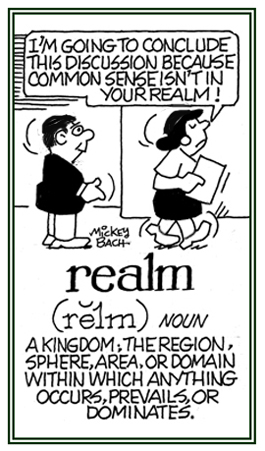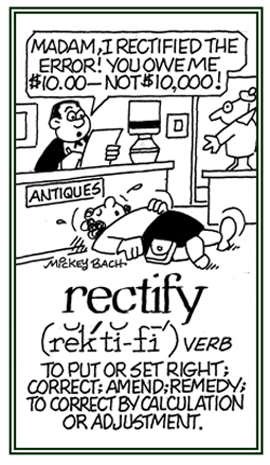regi-, reg-, rec-, rex-
(Latin: to direct, to rule, to lead straight, to keep straight; to guide, to govern)
Although it does not appear to be correct, all of the words in this unit etymologically come from this family group. Some words; such as, surge and its related formats, may be presented as separate units; however, they originally evolved from this family unit.
The peace of the king; that is, the peace, good order, and security for life and property that is one of the objects of government to maintain, and which the king, as the personification of the power of the state, is supposed to guaranty to all persons within the protection of the law.
This term was also given in ancient times, to a certain privileged district or sanctuary. The pax regis, or verge of the court, as it was afterwards called, extended from the palace-gate to the distance of three miles, three furlongs, three acres, nine feet, nine palms, and nine barleycorns. [The verge or virge is from old English law and referred to the area of the royal court that bounded the jurisdiction of the lord steward of the household].
2. A bar or bars of rolled steel making a track, or tracks along which vehicles can travel: Street cars and trains, for example, use rails to proceed from one place to another.
3. The railroad as a means of transportation: The products were transported by rail to the various stores.
4. Etymology: "a bar" from early 14th century, from Old French reille, from Common Latin regla, from Latin regula, "straight stick" from a form related to regere, "to straighten, to guide".
Technically, railings are horizontal while palings are vertical.
2. A special field or sphere of something: James was very interested in the realm of chemistry.
3. Etymology: from Latin regimen, "rule, government."

Go to this Word A Day Revisited Index
so you can see more of Mickey Bach's cartoons.
2. Etymology: from the Latin rectangulus; a combination of rectus, "right" + angulus, "angle".
2. A procedure that involves decontaminating or cleaning a material: Rectification can be described as the process of removing impure substances from oil, metals, sugar, etc.

Go to this Word A Day Revisited Index
so you can see more of Mickey Bach's cartoons.
2. Etymology: "a straightforward line of descent", from Late Latin rectilineus which comes from the Latin words rectus, "straight" + linea, "line".
A lesser-known variant, "rectilineal", comes from the same Late Latin rectilineus and employs the -al suffix instead of -ar.
Rectilineal still shows up occasionally, but rectilinear is used much more.


